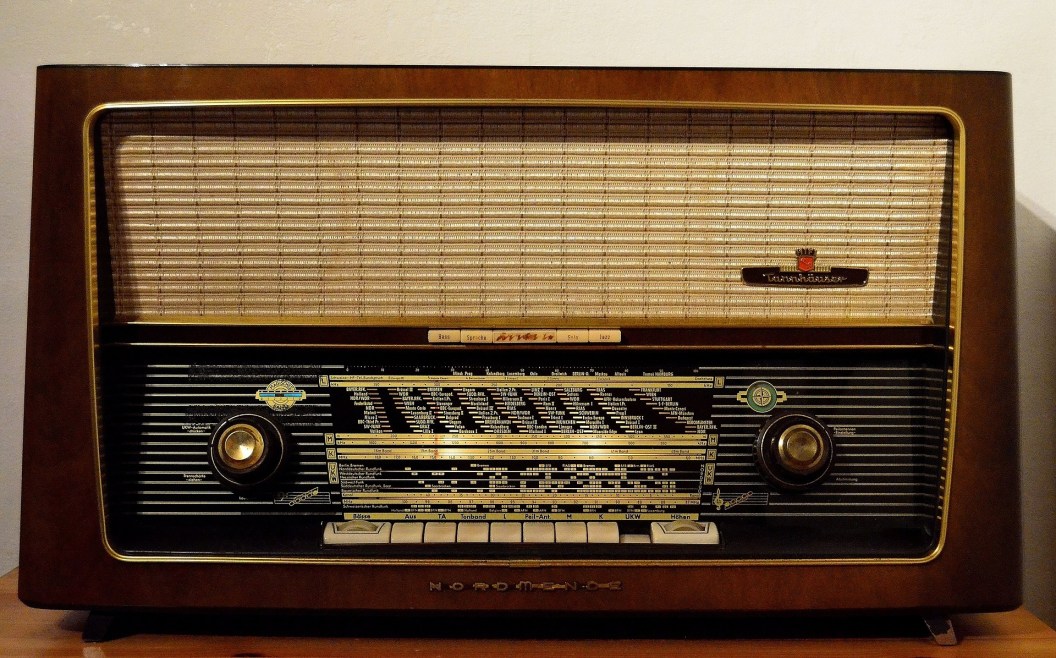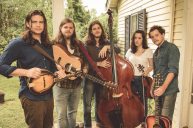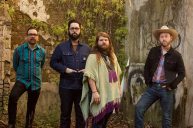[dropcap]A[/dropcap]mericana used to be the music of your local low-powered AM stations, but stations like Austin's Sun Radio and middle Tennessee's WMOT Roots Radio are spreading the "dirt-in-your-ears" genre across multiple counties—even states. With a solid, growing presence on the airwaves, is Americana becoming the new genre to be reckoned with on radio?
Roots Radio
Jessie Scott, a founding member of the Americana Music Association and the program director for WMOT, is radio's reigning Americana queen. Her 40-year career in radio has taken her from New York to Austin to Nashville, with several cities in between. And she's been touting Americana the whole way.
It was at Austin's SXSW over 20 years ago when Scott and a few dozen of her industry peers got together to create a movement for what Scott calls the "earthy, rootsy, soulful, real, not prefabricated pop music." It was called Americana, named for music born from American roots: the blues, old school country, rockabilly, honky tonk and western swing.
So what lead to the earthy, rootsy resurgence in America? Scott says it all goes back to a movie and the little soundtrack that could.
"Over the course of the last 20 years we've really watched an amazing thing happened with this music. I think the most amazing thing of all, which I just think was totally inadvertent, was T Bone Burnett advocating and producing O Brother, Where Art Thou?," Scott says.
The massively popular soundtrack, which made hits out of songs from the 1920s, inspired a younger generation who were exposed to roots music through the soundtrack.
"That record really spoke to us but even more it spoke to another generation. The kids who were 10, 13, 18 when they heard O Brother, Where Art Thou?, a lot of them thought that those sonics were things that were able to be embraced and incorporated them into their music. It spawned another generation of artistry," Scott says. "We're reaping the benefit of that now. "

The film "O Brother Where Art Thou?" led a roots music revival that paved the way for Americana radio's popularity today.
WMOT Roots Radio, a 100,000-watt Americana-only radio station broadcasting out of Middle Tennessee State University, is one of those benefits.
"Because we're NPR and because we're a university we get to dig pretty deep. It's not a corporate situation where they tell you you can't do this, or you shouldn't do that or you should keep the playlist tight—any of that stuff," Scott says. "We get to expose a lot of new music and we get to dig into the archives for the old stuff even before it was deemed Americana."
The XM Factor
Scott first got a glimpse of the American public's thirst for roots music at the satellite XM Radio. She started the station's first Americana channel, X Country (pronounced "cross" country.")
At XM, Scott was able to give exposure to artists like Steve Earle and Reckless Kelly, who had never had a lot of national exposure.
Return to Independence?
The Telecommunications Act of 1996 allowed for media cross-ownership and lead to the deregulation of media broadcasts. The act lead to more corporate-owned media conglomerates controlling stations. Often, smaller, independent radio stations went by the wayside.
But some independent stations have continued to prevail. And if you're yearning for an alternative to the bro-country format, there's another reason to turn to the Americana station on your dial.
"You have this whole crop of great new artists who are making waves," Scott says. "That includes people like Sturgill Simpson, Jason Isbell, Hurray for the Riff Raff — so many bright lights. It's really exciting."
Austin's Sun Radio, a solar powered radio station, recently expanded its signal. The station churns out Americana to multiple counties throughout central Texas.
Scott says she has faith independent radio will continue to grow.
"I've been watching and waiting for the day that they shed some of the radio stations and the markets that they aren't doing that well with. Then maybe some new 'ma and pa' owners could come in and do some more local radio," Scott says. "I think radio still has enormous penetration in the market. I think one of the things it does best is stay local and talk to the community."




